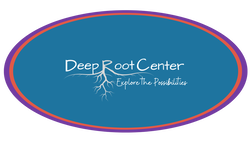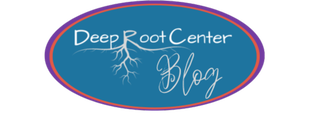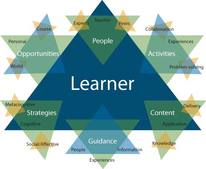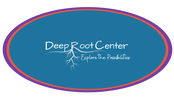 These statements belong to two completely different educational philosophies. In fact, they are on opposite ends of the educational spectrum. The former represents a teacher/institutional centered pedagogy and the later demonstrates why learner directed education is desirable, natural, and so very successful. I have heard teachers say that it is their obligation as a teacher to make sure their students understand the information they present in a particular on-going class. There are at least five assumptions or presumptions hidden within that statement. The first is the idea that students, especially young people, are blank slates or empty vessels just waiting to be enlightened with profound knowledge. The second is the belief that students are actually going to retain all the information a teacher presents. The third assumes that it doesn't matter what the student is actually interested in or passionate about, everyone in our society must learn the same stuff. The fourth is that everyone acquires knowledge in the same way. Yes, there have been attempts to implement the “revolutionary” ideas around the concepts of learning styles and modes of intelligence. These methods, however, still promote top-down learning (a teacher knows all and relays that information to the students). And finally, there is a universal understanding that the institution and the teacher are in charge of the educational life of their students; they demand respect, accountability, and academic progress from the pupils and their families through testing, attendance policies, homework, punishment, and/or rewards. In an atmosphere or environment of self-directed or student-centered learning, the above assumptions are turned on their head. We know that children are not unformed beings just waiting for someone to “fill” them up with knowledge. From the very earliest age, they have thoughts and ideas that make them completely different than any other human in the history of humanity. We are all completely unique individuals. A learner-centered educational system recognizes that fact before any other. Not only are we all singular beings, we all have interests and passions that are not represented in the same combination in any other person. And, we are motivated to learn about the things we are most interested in; the excitement of discovery becomes the reward. There is no need for an outside presence to make sure, because the desire to acquire knowledge is intrinsically driven. So how does the make possible element come into play? I firmly believe that teachers are an important ingredient in the learning process. They are, however, facilitators of learning, not dictators or tyrants. Teachers in a self-directed learning environment provide options, ideas, resources, and a body of knowledge that students may not already be aware of. They celebrate and honor a youth's interests and strengths, while offering suggestions that complement or enhance the student's skills. They also provide encouragement and support when a student runs into an obstacle or challenge. Sometimes, they may even present a challenge to encourage growth and independence. Teaching and learning become a relationship of mutual respect and trust. I trust my students to tell me what is in their hearts. I respect their stories, their emotion, and the place they are in, at that given moment. In turn, they offer the same to me. We are equals. We each comprehend the imperfectness of being human. We all understand that mistakes are going to be made, but an opportunity to learn is always the result of those missteps. When someone asks my educational philosophy, I always respond that learning is a conversation not a lecture. It is a back and forth, a give and take, a mutually beneficial interaction. It is usually messy, disorganized, and loud, but it can also be quiet and introspective. It may involve books or the Internet or it could be a creative pursuit. Everyone acquires knowledge in a way that is completely unique. I will not judge what learning looks, sounds, feels, tastes, or smells like. At Deep Root Center, we make learning possible, whatever that personally means, for each individual who walks through our doors.
0 Comments
Your comment will be posted after it is approved.
Leave a Reply. |
|
© 2024 Whole Learners, Inc. 501(c)3
Deep Root Center
48 Riverside Drive, Canton, NY 13617
315*323*1435/[email protected]
Deep Root Center
48 Riverside Drive, Canton, NY 13617
315*323*1435/[email protected]



